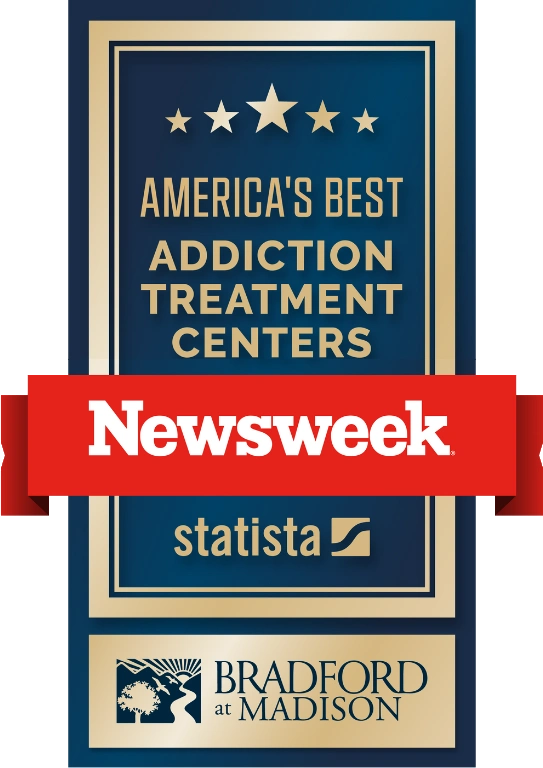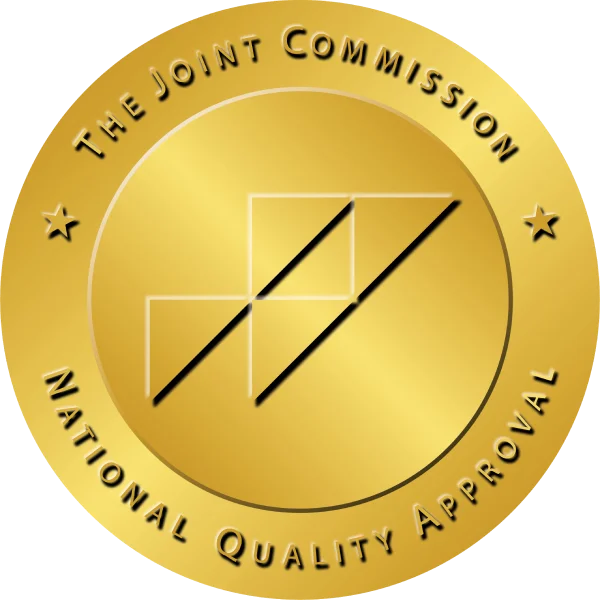How a Fentanyl Addiction Treatment Center Can Help You Reclaim Your Life

Opioid use disorders affect over 2.1 million people in the United States. This mental health concern involves the compulsive use of substances like heroin, oxycodone, and one of the most powerful opioids available: fentanyl.
Fentanyl addiction has become a significant problem in recent years. It is the leading driver in the rapid increase of overdose deaths throughout the country, especially if it’s purchased from illicit manufacturers. The risk is much higher in those instances because the pills could contain unknown dosages and other drugs.
If you or a loved one is struggling with fentanyl addiction, one of the most important steps you can take to protect your life is to consider treatment. By turning to a fentanyl rehab program, you can receive the support you need to break free from the drug’s grip. Learn more about fentanyl addiction treatment centers and how they can save your life.
What Is Fentanyl?
Fentanyl is a synthetic opioid created to offer relief to people who have undergone surgery or who are living with chronic pain. It functions similarly to morphine, but it can be up to 100 times more powerful and, as such, has been classified as a Schedule II drug.
Like other depressants, fentanyl impacts the opioid receptors in the brain and affects the central nervous system. Fentanyl is available in a variety of forms, from lozenges to patches that stick to your skin, but most of the illicit options available are tablets.
Why Fentanyl Is So Dangerous
The drug’s potency and fast action can quickly lead to dependence and addiction. When you take fentanyl, it causes an overwhelming sense of euphoria that triggers the reward center of the brain. The pleasurable sensation prompts that reward center to crave more of the drug, and that’s the first step in developing an addiction.
Fentanyl depresses your central nervous system, including your breathing. Taking too much of it can lower your blood pressure to dangerous levels and could stop your respiratory system completely. People who have fentanyl prescriptions can experience this problem, but it can be even more of a risk if you purchase it illegally from an illicit manufacturer.
It’s very difficult to gauge how much fentanyl is in an illegal tablet. To increase profits, many illicit manufacturers and dealers cut fentanyl with other drugs, so you never really know what it is you’re taking.
Additionally, your body can rapidly get used to the amount of fentanyl you take regularly. You may stop feeling the powerful effects you want, which could lead you to increase the dosage, putting you at risk of overdosing.
Signs and Symptoms of Fentanyl Addiction
The first step in getting help for fentanyl addiction is recognizing that you have a problem. There are a variety of symptoms and signs of fentanyl addiction to watch for. These include:
- Euphoria followed by apathy
- Drowsiness
- Constricted pupils
- Slurred speech
- Isolation
- Absences from school or work
- Doctor shopping
- Forged prescriptions
- Impaired memory
- Impaired concentration
- Fentanyl craving
- Withdrawal symptoms
- Lack of interest in favorite activities
Someone who has a fentanyl addiction is one bad pill away from suffering a potentially deadly overdose. The drug’s potency means that even a slightly higher dose than you usually take could overwhelm your system. The symptoms of fentanyl overdose are the same as for other opioids and include:
- Clammy skin
- Slowed breathing
- Weak or limp body
- Vomiting
- Pinpoint pupils
- Blue lips or fingernails
- Slowed heart rate
Acting fast if you suspect you or a loved one is experiencing a fentanyl overdose is essential. Call emergency services immediately so that they can reverse the effects with the appropriate medications and transport you to the hospital.
What Is Fentanyl Addiction Treatment?
By turning to a fentanyl treatment center, you can begin the process of understanding what led to the addiction and what steps are necessary to start your recovery. This form of treatment begins with a detox process and involves either inpatient or outpatient programs that offer individual and group therapy sessions to uncover the root cause of the substance use disorder.
There are a variety of targeted treatment options, too, such as programs for military veterans as well as for those who have co-occurring mental health concerns. You can also receive medication-assisted treatment (MAT) to help you safely stop taking fentanyl and reduce cravings.
Fentanyl Withdrawal and Risks of Detoxing Alone
When you turn to a rehab for fentanyl addiction, the first step in the process is to go through detoxification. This can be one of the most challenging aspects of treatment, since your body will struggle to stabilize if you abruptly stop taking fentanyl. That is when withdrawal symptoms start, which can be dangerous if not carefully monitored.
These symptoms can include:
- Nausea
- Vomiting
- Diarrhea
- Flu-like symptoms
- High blood pressure
- Fast heart rate
- Light sensitivity
- Insomnia
Fentanyl withdrawal treatment relies on offering medications that can keep your vital signs stable and decrease the cravings you can experience. Trying to go through this process alone can put you at risk of relapsing just to get relief from the powerful withdrawal symptoms.
Medical Detox for Fentanyl: What to Expect at Bradford at Madison

At Bradford at Madison, we offer fentanyl detox programs that can keep you safe as you go through withdrawal. Medical professionals will carefully assess you and then prescribe the appropriate medications to stabilize you.
The severity of the addiction and how long you’ve been using fentanyl will impact the duration of the detox process. Because we offer inpatient detoxification, you can receive 24/7 monitoring and access to our medical team if there is a need to adjust your medications.
Residential vs. Outpatient Care for Fentanyl Addiction
When searching for a “fentanyl rehab near me,” one of the considerations to have is whether you can benefit more from inpatient or outpatient care. Inpatient fentanyl rehab involves staying overnight at the treatment facility, allowing you to receive the highest level of care and constant monitoring.
Inpatient treatment can be a good option for those just starting their journey to recovery, but it can also be helpful for those who have tried less intensive programs without success. But what if you can’t leave your work or family responsibilities behind for the length of the treatment program?
In those instances, you can benefit from outpatient treatment. These programs offer a high level of care but allow you to go home each night. To get the most out of outpatient treatment, you must have a safe home environment without easy access to drugs. A strong support system is essential.
Because fentanyl addiction is such a dangerous and severe condition, most people will get the most out of residential care. Make sure to speak with our team about all of your options before making a decision.
Benefits of Inpatient Treatment for Fentanyl Addiction
Residential fentanyl treatment provides the structure that you need to focus on your recovery. You can leave behind all of your daily problems and remove any distractions or stressors that could be triggering the need to use fentanyl.
By staying at the center 24/7, you can receive constant monitoring to keep you as stable as possible. You’ll have access to medical professionals who can adjust medications and provide guidance if you’re struggling.
You’ll also be immersed in your recovery. You’ll be surrounded by people who are focused on healing, allowing you to hear about their own experiences. This can go a long way toward addressing the feelings of isolation that are so common in people struggling with addiction.
Dual Diagnosis and Co-Occurring Disorders in Fentanyl Recovery
At our Alabama addiction treatment center, we offer programs that address co-occurring disorders. It’s common for people to experience both fentanyl addiction and other mental health problems at the same time. The symptoms of mental illness can lead people to seek relief by turning to drugs or alcohol, triggering a substance use disorder.
Dual-diagnosis treatment addresses both of these issues at the same time. You participate in therapy sessions that work to uncover the underlying cause of these conditions and whether there are factors that are preventing you from recovering.
Medication-Assisted Treatment (MAT) and Its Role in Fentanyl Rehab
Medication-assisted treatment for fentanyl addiction offers the chance to go through your treatment without the discomfort of intense cravings and other withdrawal symptoms. MAT for opioid addiction typically relies on buprenorphine, methadone, and naltrexone.
Your care team will find the right dosage by taking into consideration your overall health levels, the severity of the addiction, and a variety of other factors. As your treatment continues, the dosage can be adjusted to meet your changing needs.
What Happens After Detox: Therapy, Relapse Prevention, and Aftercare

Once you complete detox services at our fentanyl rehab in Alabama, you can begin therapy for opioid addiction. This involves individual sessions that use evidence-based behavioral therapies to help you understand how negative or unhelpful thought patterns impact your moods and behaviors.
During these sessions, you can also learn how to better manage powerful emotions without having to resort to substances such as fentanyl. You’ll build relapse prevention strategies, too, that can assist you in knowing what to do if you find yourself struggling.
Additionally, you have the chance to participate in group therapy sessions, which allow you to meet others who are also in recovery. Not only can you address feelings of isolation, but you can also begin building your support community.
Once you complete your treatment program, you can access aftercare for addiction recovery. These services, including alumni programs, ensure that you still feel connected with your care team and that you remain energized and focused on your recovery.
Why Choose Bradford at Madison for Fentanyl Addiction Treatment?
As you begin your search for fentanyl addiction help, consider our Alabama center. We provide comprehensive and personalized treatment options that can assist you in your recovery. Whether you have tried to get sober before or you have never participated in a recovery program, our care team is ready to help you.
We have medical professionals on-site 24/7 to ensure that you can receive support whenever you need it. Because we know just how vital building a recovery community is, we provide group and family therapy options alongside individual treatment.
Our team is on your side. We work with you to uncover all of the factors that could be leading you to fentanyl use and can guide you if you’re battling other mental health concerns at the same time. When you trust the team at Bradford at Madison, you are giving yourself the tools you need to achieve long-term sobriety.
Does Insurance Cover Fentanyl Rehab in Alabama?
Most insurance plans cover addiction treatment services, though the extent of the coverage and what type of services may be available to you depend on the exact insurance you have. Our team can assist you in understanding your options so that you can receive the support you need.
Steps to Take if You or a Loved One Needs Fentanyl Addiction Help
If you or a loved one is struggling with fentanyl addiction, accepting that you need help is an important first step. The next thing to do is to find the right treatment program to guide you through addiction and into recovery.
Often, people assume that they can just quit taking fentanyl. The chemical changes that the drug prompts in your brain and throughout your body mean that it’s never that simple. With a team of experts providing medication-assisted care and a safe environment where you can detox, you can begin your recovery safely.
At Bradford at Madison, our treatment center provides the full assistance you need. From detox programs to inpatient and outpatient care, you can take those first steps toward achieving long-term sobriety.
You don’t have to go through this alone when there are compassionate and dedicated professionals prepared to offer the quality care you deserve. Contact us at Bradford at Madison to begin your journey.



